Sustaining our pride
- Par Jérôme BAÏMELE (stagiaire)
- 13 févr. 2018 09:07
- 0 Likes
Of the political changes that have made Cameroon unique on the African continent, reunification stands out tall. The first step that concretized a sweet dream was taken on 11 February 1961. On that day, Cameroonians West of the Mungo went to the polls and opted for a reunion with their kindred of the east after 45 years of colonial separation. The referendum (plebiscite) was organized by the United Nations Organisation.
After the former French Cameroons, had become independent on 1st January 1960, and Nigeria looked forward to achieving its own freedom on 1st October 1960, the fate of the former British Southern Cameroons had to be decided by the people themselves. Consequently, the United Nations under whose mandate the two territories were administered had to act fast.
“Do you want to achieve independence by integrating with Nigeria, or by reunifying with the former French Cameroons which had become independent” These were two questions to be answered at the polls by the former British Southern and Northern Cameroonians.
In the absence of a third option, (Independence before integration or reunification) Cameroonians west of the Mungo opted with a landslide of 94per cent to reunify with their kindred east of the Mungo. The former British Northern Cameroonians voted to remain with Nigeria, the ballot instead of the bullet having played its role.
What a surprise to many! The Foumban constitutional conference of July 1961 charted the way for reunification of the former British Southern Cameroons, with the former French Cameroons, and on 1st October 1961 the Federal Republic of Cameroon was born. This federation in 1972, following the 20 May referendum, gave way to the Republic of Cameroon. The geopolitical strides towards the consolidation of unity were fast and conspicuous as compatriots prayed for fraternal love, solidarity and development of their country.
These political achievements earned for Cameroon the enviable description of, “Laboratory of African Unity.” Besides, Cameroon’s location at the hinge of the African continent and the consequent migrations from different parts of Africa renders the country with over 250 ethnic groups indeed “Africa in miniature.”
However, the greatness of a nation goes beyond enviable political changes and apparently pacific, scenario. For, it is genuine stability and unity that trigger the developments which sustain pride and credibility.
This also depends on patriotic commitment to the noble ideals of governance which begins with the love of oneself, the family and youths.
That 11 February, the date the first step toward reunification was declared the date to commemorate and celebrate as the nation’s Youth Day is laudable. The future of a nation, in effect, depends on youths who in Cameroon constitute over 60 percent of the population. But as we celebrate the 52nd edition of Cameroon Youth Day, can we really be proud of what quotas we are contributing to leave behind a peaceful, united and progressive society for future generation...
Cet article complet est réservé aux abonnés
Déjà abonné ? Identifiez-vous >
Accédez en illimité à Cameroon Tribune Digital à partir de 26250 FCFA
Je M'abonne1 minute suffit pour vous abonner à Cameroon Tribune Digital !
- Votre numéro spécial cameroon-tribune en version numérique
- Des encarts
- Des appels d'offres exclusives
- D'avant-première (accès 24h avant la publication)
- Des éditions consultables sur tous supports (smartphone, tablettes, PC)






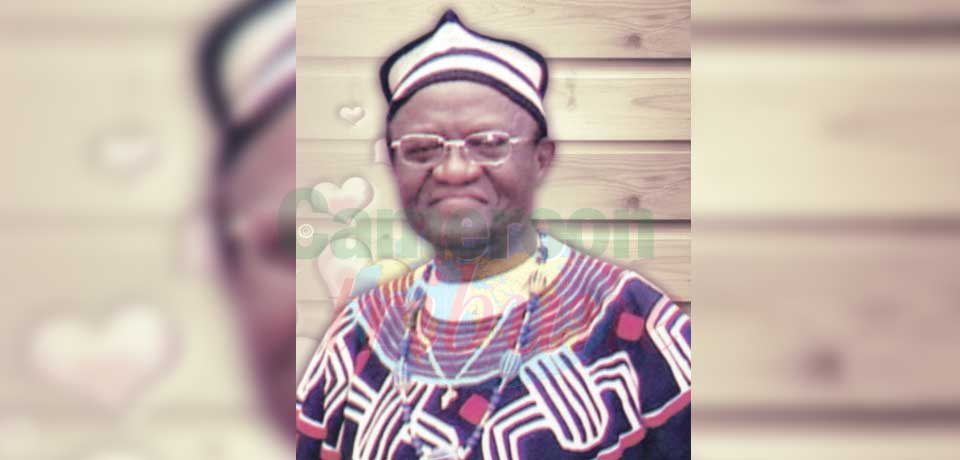
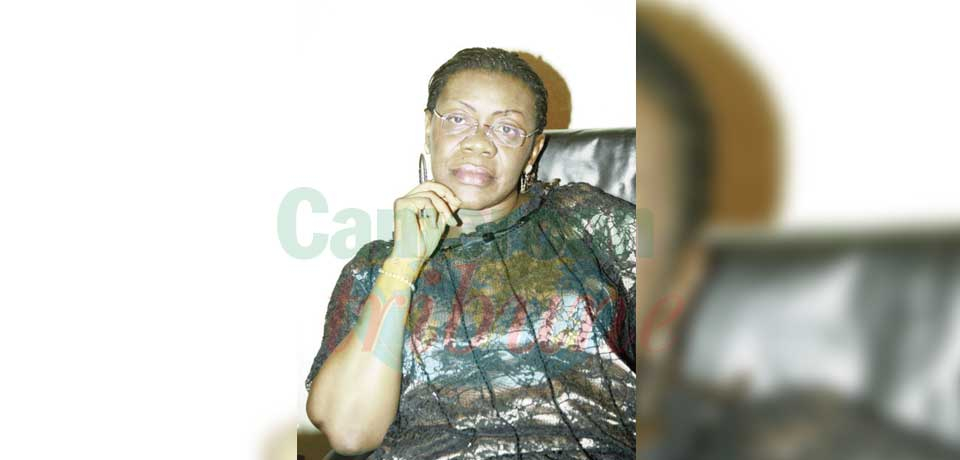
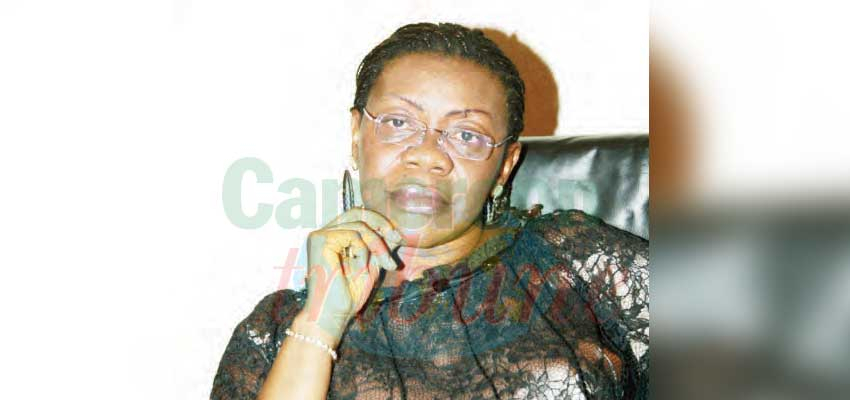
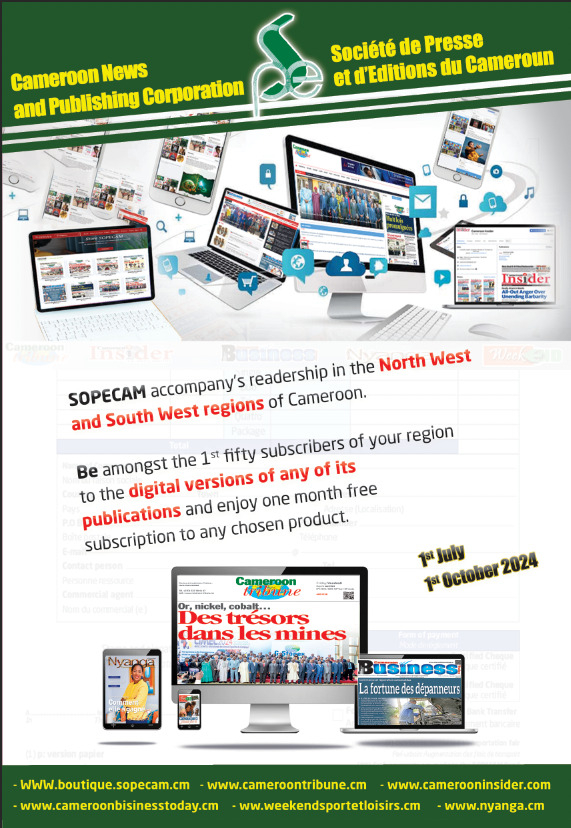

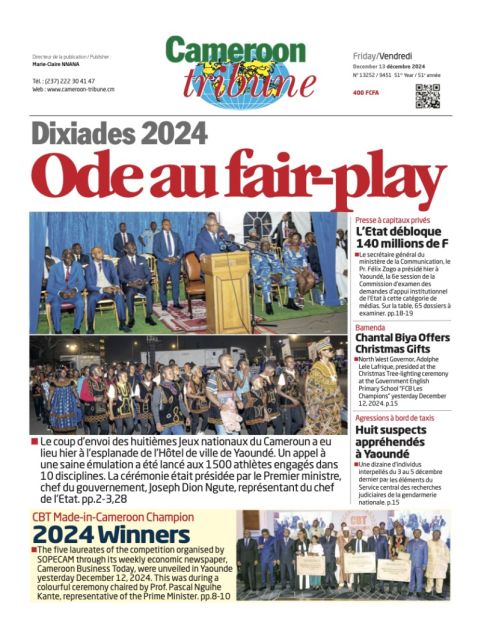




Commentaires